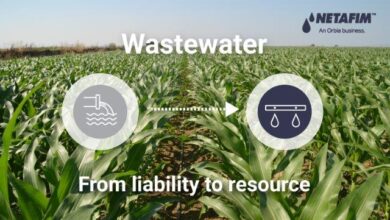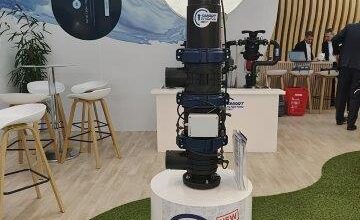The Effects of Water Quality Treatment on Agriculture
Many countries suffer from poor water quality, which is getting worse by climate changes
Elad Frenkel, Chairman of WATEC 2017

From September 12-14, the WATEC Israel week will be held at the Tel Aviv Convention Center. The event takes place biennially and provides a central platform for presenting the most advanced water and wastewater technologies and for exchanging knowledge and ideas among academics, analysts and specialists in the industry from around the globe.
The event’s activities include the WATEC V.I.P. Conference – Vision, Innovation, Practice – with panel discussions on the water crisis and how to deal with it, as well as presentations of the latest solutions and technologies. Other activities will also take place during the conference and exhibition, each focusing on a “burning” water issue.
Thousands of visitors are due to attend the WATEC event. People from the water industry, exhibitors and researchers, political leaders and decision-makers from all over the globe who are interested in Israeli technologies, including ministers of agriculture.
We met with the chairperson of the exhibition and the conference, Elad Frenkel, to hear from him about the contribution of the Israeli water industry to countries around the world and the need to feed a growing population.
According to Elad, many countries suffer from poor water quality, which is getting worse by climate changes and the loss of water reserves. However, Israel, which confronted a water crisis for many years due to many years of drought, is a world model in this field.
This reality was fertile ground for the activity of hundreds of private companies that have developed water treatment solutions and reached outstanding international achievements, especially in the area of recycling wastewater.
Israel is a world leader in recycling wastewater for irrigation. About 85% of wastewater in Israel is recycled. In comparison, Spain, in second place, recycles only about a fifth of its wastewater. There are other countries that are starting to recycle wastewater, but in smaller quantities.
The shortage of water following arid years and the need to irrigate fairly large agricultural areas, led to the need to find a way of increasing the amount of water for irrigation by treating wastewater (reclaimed water). This led to an extensive industry of international Israeli companies that have developed a range of technologies – filtering, biological treatments, and more – to improve water, maintain and control its quality. Dozens of companies that treat, filter and carry wastewater will appear at the exhibition.
The need to save water and the understanding that water is not a trivial thing, have led to the development of smart irrigation methods that save water (drip irrigation). Several companies will be displaying technologies of this type at the exhibition. The aim is to introduce innovative technologies that limit wastage and reduce the cost of water for irrigation.
One of the conference sessions will deal with the monetary value of water – for many years water was priced with no consideration of the cost of producing it. Both domestic consumers and farmers paid a very low price for water. A few years ago, the prices in Israel were increased, and now countries such as India and Mexico, where consumers were used to free distribution of this resource, are starting to understand that the supply of high-quality water involves costs that should be imposed on the consumer.
Elad Frenkel is the CEO of Aqwise – an Israeli water technology company that has grown rapidly over the past decade. In addition, he is chairman of WATEC and also serves as chairman of the Export Institute’s Public Committee on the Water Industry.




